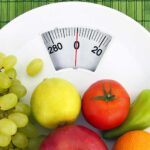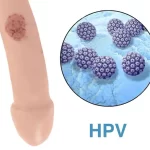Here’s The Nutritional Value of Egg
Regarding the nutritional value of egg, it is noteworthy and important to have this knowledge that eggs make available a wide variety of high quality nutrients that are easy to digest and are of great value for the healthy development of the body.

Looking at the structure, you will notice that the embryonic disk contained in an egg is surrounded by a significant amount of reserve nutritive material.
Egg’s structure consists of the following:
- Shell; which has a protein base of 4% of its weight, a portion of water and air and microorganisms
- Air space; formed between two membranes that protect the egg white
- Membrane; protects the contents of the egg, however quite porous
- Egg white; formed of water and protein
- Chalaza; formed of protein called ovomucin
- Embryonic disk; contains the germinal cell
- Yolk; contains the most nutrients (the main nutritional value of egg) within the egg such as proteins, fats, minerals and vitamins A, D, E and B.
YOU MAY LIKE: Benefits and Use of Milk Thistle
Egg Composition
Energy = 149 kcal = 625 kj
Protein = 12.5 g
Carbohydrates = 1.22 g
Fiber = ___
Vitamin A = 191 μg RE
Vitamin B1 = 0.062 mg
Vitamin B2 = 0.508 mg
Niacin = 2.61 mg NE
Vitamin B6 = 0.139 mg
Folate = 47.0 μg
Vitamin B12 = 1.00 μg
Vitamin C = ___
Vitamin E = 1.05 mg ∝-TE
Calcium = 49.0 mg
Phosphorus = 178 mg
Magnesium = 10.0 mg
Iron = 1.44 mg
Potassium = 121 mg
Zinc = 1.10 g
Total Fat = 10.0 g
Saturated Fat = 3.10 g
Cholesterol = 425 mg
Sodium = 126 mg
This is the % daily value provided by 100 grams of egg
Percentage Composition
Fat = 10.0%
Protein = 12.5%
Carbohydrates = 1.22%
Minerals = 0.940%
Water = 75.3%
Composition of a 65 g egg
| Eggshell | Egg white | Yolk | |
| Water (g) | 0.07 | 34.27 | 9.95 |
| Protein (g) | 0.26 | 4.2 | 3.1 |
| Fats (g) | 0 | Traces | 5.85 |
| Sugars (g) | 0 | 0.6 | 0.2 |
| Minerals (g) | 6.2 | Traces | 0.298 |
| Vitamins (g) | 0 | 0 | 0.002 |
| Total | 6.53 | 39.07 | 19.4 |
In essence, when we talk about the nutritional value of egg, the following are the nutrients that are found in the egg. They are:
- Fats
- Protein
- Vitamins
- Minerals
- Trace elements
Fats
In nutritional value of egg, fats represent about 10% of the edible portion of the egg. The following are the various types of fats in an egg. They include:
- Triglycerides: Mono and polyunsaturated fatty acids. They all surpass saturated fats.
- Phospholipids: They are lecithin and they act act as emulsifiers
- Other fats such as cholesterol (in every 65 grams of egg, there are about 250 mg (cholesterol)
Percentage Distribution of Fatty Acids
Polyunsaturated = 1.36 g
Saturated = 3.10%
Monounsaturated = 3.81%
Protein
In egg white as well as the yolk, various proteins are found. Protein in egg represent about 12.5% of the edible portion.
When we talk about the quality, amino acids proportion that form egg proteins are somewhat more closely approximates the ideal for humans than any other food.

Therefore, the biological value of egg proteins is 94%. This is in accordance with the information provided by Dr. George Pamplona-Roger in his book, Encyclopedia of Foods and their healing power“.
Proteins in egg are easily digested and assimilated, especially when properly cooked. Proteins coagulate and easily foam when beaten because they incorporate tiny air bubbles.
Therefore, they permit preparation of lighter foods, such as meringues, soufflé and omelets.
Egg white promote emulsion, a mixture of two different liquids and due to its lecithin content, the yolk is a better emulsifier than egg white.
Vitamins
In nutritional value of egg, they are a good source of vitamin A and E. Again, after fish liver oil, egg is the most significant natural source of vitamin D.
Hydrosoluble: Here, all of the B group vitamins are contained in the egg, even vitamin B12. One egg provides one-third of the RDA for an adult. Also note that in nutritional value of egg, there is no vitamin C.
Minerals
All minerals are present in egg and their potassium and iron content are quite notable. Eggs have sodium content that is relatively high.
Iron in egg is non-heme just like the one in vegetables and this results to its difficulty to be absorbed. Since there is no presence of vitamin C in eggs, the presence of this vitamin from other foods will certainly improve its availability and the absorption is somewhat easier.
Sodium is relatively high and it is important to mind how you consume eggs since this mineral is consumed in excess in the Western diet.
Trace Elements
There is zinc and selenium and it is noteworthy that zinc in eggs is readily an antioxidant in the body’s cells. Science Direct has more insights regarding nutritional value of egg.
Nutritional value of Egg and Benefits

One of the benefits of eating eggs is that eggs do not produce uric acid, unlike other protein source like fish, legumes or meat.
Eggs promote healthy growth and this is because they can contribute to the nutritional needs of children and even adolescents especially in the period of rapid growth. According to Good House Keeping, eggs improve brain health.
One of the benefits of eggs regarding the nutritional needs is that egg’s proteins, minerals, fats and vitamins are easily digested and the fats in the egg yolk are emulsified, thereby promoting their digestion.
Other information you should note regarding the nutritional value of egg is that egg is deficient in the following nutrients
- Vitamin C
- Fiber
- Carbohydrates
VISIT BLOG TO SEE MORE RELATED ARTICLES
Foods to help with Constipation

A graduate of Computer Science and Information Management Technology. Diploma – Caregiving, Certificates – Dementia and Diabetes Awareness and Management. A researcher, blogger, songwriter, singer and acoustic guitarist. Born in an environment where natural talents such as healing are imparted at our natural birth. This natural talents of healing is the result of our genetic inheritance and the training from family environment.






















